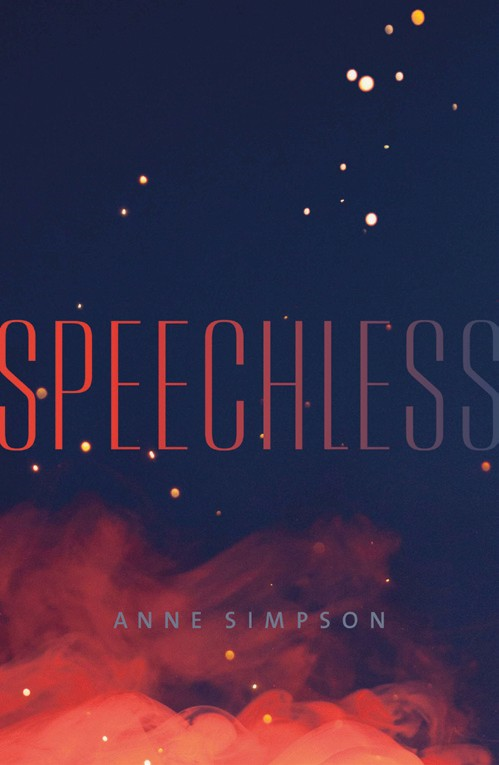Speechless by Anne Simpson
Speechless
by Anne Simpson
Freehand Books, 2020; 360 pages; $22.95
Review by Heidi Greco
When I began reading Anne Simpson’s newest book of fiction, I thought a quiet “uh-oh,” as the character at the story’s focus is a Nigerian woman. It seemed like Simpson might have put herself into the awkward position of trying to write from a point of view not allowed to her. However, reading a recent article on exactly this challenge — trying to write through the eyes of someone beyond one’s own experience — I found myself understanding more about this difficult issue.
To be sure, Simpson has had more experience than most Canadian writers might in knowing about the culture she was writing about, as she had lived in Africa, teaching English in Nigeria. So she was already a step ahead of most of us, having already immersed herself there. And clearly she was writing from a place of deep respect.
But instead of explanations, let’s move on to the book. Speechless is a fiction, but is based in events that sadly still occur in what we call real life.
Sophie is a Canadian journalist who learns of a case she wants to bring to public light. A’isha is an unmarried woman who has been accused of adultery, a crime punishable by death. That the young woman has had sexual relations is a given, as she has borne a child, the result of the supposed adultery. Her punishment, to be meted out once the infant has been weaned, is the traditional public stoning.
But the adultery in question turns out to be anything but consensual; it’s a clear instance of rape. Yet the deck seems stacked against A’isha. After all, she is only a woman, and the law states that four men must witness such an act for it to be deemed rape.
What?! I can almost hear you asking the same astounded question I had. Yet that is the case in the culture A’isha lives in—one where arranged marriage (often to a much older man) and silenced women prevail.
Back story is essential to understanding Simpson’s novel. Details are revealed in unconventional ways, appearing unexpectedly, shifting almost randomly — the way thoughts so often can. The result is a much more richly textured account of events than chronological, straight-line telling would have been. Sophie revisits memories, and even repeats conversations with her dead father, always seeking to understand her place in the world. She questions her own actions, replaying old scenes even when they’re over and done, an action I know all too well, all those “if only” situations. Specific particulars, especially of the proposed execution, come together slowly; the resulting force of them becomes only more horrific in intensity.
Such complexity comes as no surprise considering Simpson’s body of work — fiction, non-fiction (collections of essays), and poetry. The many interwoven threads in Speechless (especially with the ways so many things go awry) attest to her skill with fiction. The research she did for this book is evident, giving it a ring of authenticity akin to the best creative non-fiction. The clarity and bright imagery reveal a poet’s love of language: “A ribbon of kelp at his feet, and a mound of stuff, heavy and thick and tangled. He touches the tip of his German shoe to it, his glossy leather shoe that’s entirely unsuitable to walking on a beach.”
Even though I can stand back and see its necessity to the overall plot, the novel’s romantic thread was for me the weakest element. And maybe that perceived weakness had less to do with the romance than with the book’s steady reminders about the meanings of characters’ names: Sophie, we’re told means, Wisdom, said A’isha. Safiya means pure heart. Yet, think how the importance of names has come to resonate for all of us: “Say her name” whether that’s Breonna or A’isha. Just as actions have consequences, so do words, as do our silences.
And something I might not have noticed if this book hadn’t come out in 2020: There’s so much touching — something I’m sure I’m not alone in missing — hugs, simple hand-holding, greeting one another with handshakes. During these strange and challenging times has come this brave book, one that’s not only an intriguing read, but one that’s aptly timed as peoples across boundaries try to learn about and understand each other.

